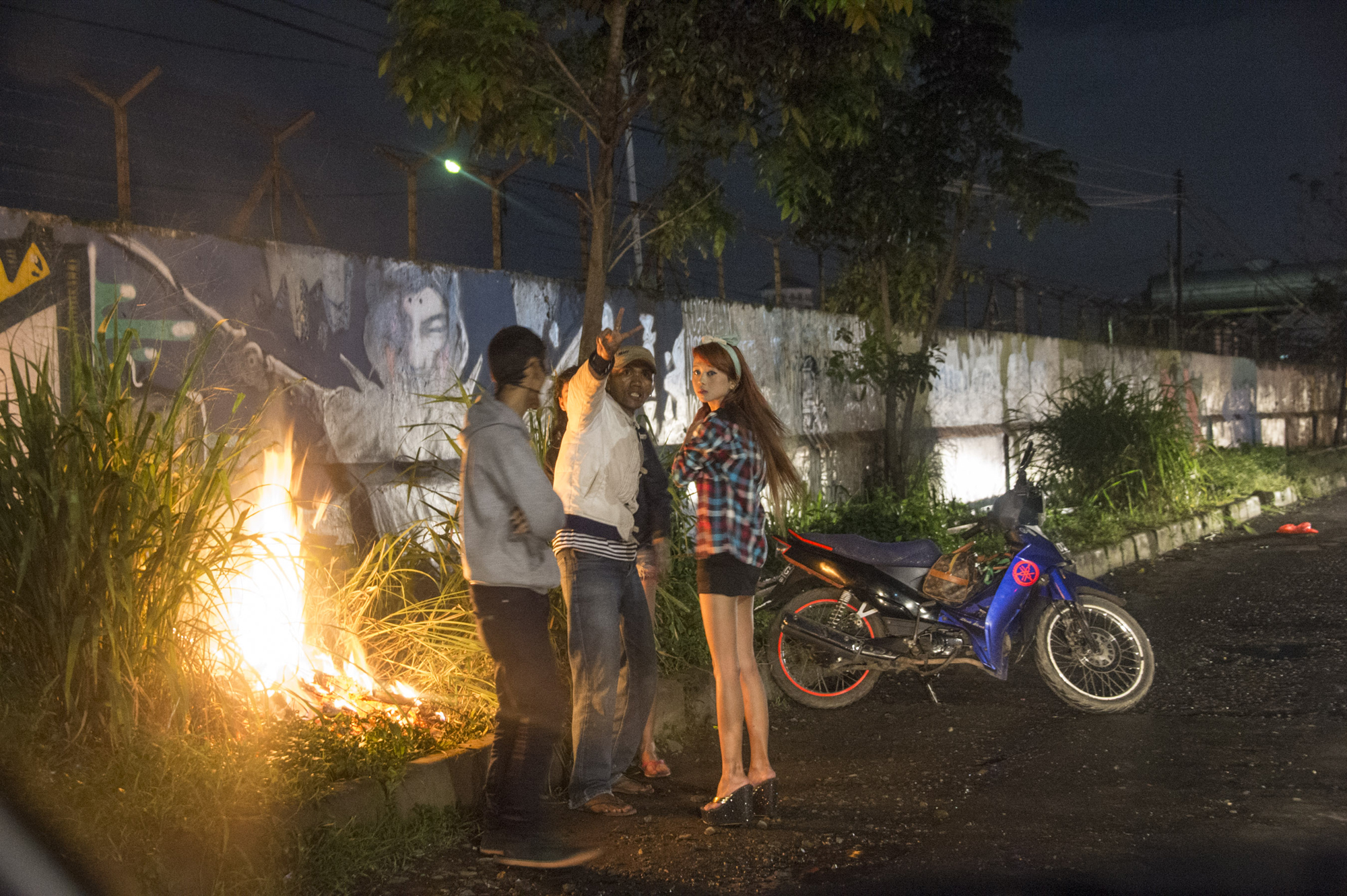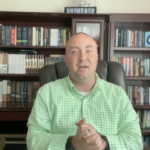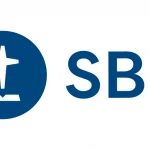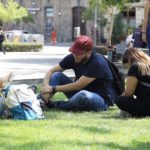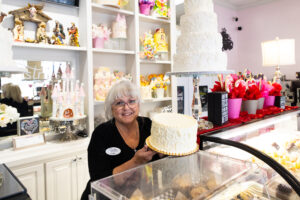

Southern Baptist Convention Executive Committee President Frank S. Page, seated second from right, met with the EC/NAMB African American Advisory Council February 6–7 in Atlanta. Council members are, seated from left, Ken Weathersby, chairman K. Marshall Williams, and A. B. Vines, and standing from left, Mark Croston, Keith Jefferson, Roscoe Belton, Leroy Fountain, Kim Hardy, Marvin Parker, Mark Hammond, Bucas Sterling III, Frank Williams, and Terry Turner. Photo courtesy of Baptist Press.
Ethnic and racial tensions still exist in the Southern Baptist Convention but can heal through transparency, honesty, and divine intervention, SBC Executive Committee President Frank S. Page told the African American Advisory Council assembled in Atlanta.
To be colorblind is not always the answer because doing so can demean another's culture, Page told the African American pastors, ministers, and denominational leaders he named to the council in 2012 to advise him on racially and ethnically relevant SBC issues.
"But there is still an ethnic and racial fault line running through our Convention. Accompanying those pressure points, there's a lack of trust. There's a lack of confidence and that is causing continued tension in our Convention," Page told the group that gathered February 6–7, likening the tension to an earthquake fault line. "And I do know, as I have gotten to know so many people . . . there is suspicion among many of them, and yes, among some African American leaders that there is still an incipient racism at work.
"I'm trying to understand, even better, what it might be like to be a person of another race. And that's not easy for me because I'm not another, I mean, I am me," Page said. "I have over the years, . . . as hopefully a white man who tries to do that which is right," tried to be colorblind, he said. "But now I realize that's not right. To be colorblind is to be insensitive to real issues."
The council, under the chairmanship of K. Marshall Williams, pastor of Nazarene Baptist Church in Philadelphia, expressed appreciation to Page for his honesty, openness, and sincerity.
In other discussions, the group addressed key ways the SBC can become more relevant to the African American community and become more fruitful in winning souls for Christ. The council plans to submit a final report to Page in June.
Council member Mark Croston, national director of Black Church Partnerships for LifeWay Christian Resources and a former pastor, introduced to the group Emmanuel McCall.
McCall was the first African American professional staff member of the SBC when he joined the Home Mission Board (currently North American Mission Board) in 1968. He recalled his twenty-three-year tenure with the board and presented members with individual, autographed copies of his book, When All God's Children Get Together: A Memoir of Race and Baptists, published in 2007 by Mercer University Press of Macon, Georgia.

Members of the Southern Baptist Convention African American Advisory Council, meeting in Atlanta, paused to pray with Emmanuel McCall (seated). Photo courtesy of Baptist Press.
"In May of '68, the headlines across the nation read 'Southern Baptists elect their first Negro executive.' That was a new, a glorious experience, and I thank God for every day I served," McCall told the council. "I saw the people of God who wanted to see change. And while there were those on the outside marching, I was on the inside talking. And there is a difference to stand outside and protest, but to get inside and work with those who love the Lord is a different thing.
"And I discovered so many Southern Baptists that I met loved the Lord deeply and we got together. And it's been a long pilgrimage, a long story. I thank God for the privilege," McCall said.
McCall expressed to Baptist Press his appreciation for Page's leadership, and for the council.
"I met Dr. Frank Page and observed his leadership. The intense interest he showed the members of that [council] was very impressive. His approach was so much like Dr. Arthur Rutledge, the executive director of the Home Mission Board under whom I worked," McCall said. "A third impression was appreciation for the . . . people around that table. They represented the best in African American church leadership. They were thoughtful, forward thinking, sincere, well informed, and seriously committed.
"A couple of them I had taught at Southern Baptist Theological Seminary," he said. "Others I had worked with in other venues. They present bright hope for the future of Christ's Kingdom."
A. B. Vines, a pastor, council member, and president of the SBC National African American Fellowship, led the council in praying for McCall.
McCall, who retired from the mission board in 1991 and is currently interim pastor of Friendship Baptist Church, an American Baptist church in Atlanta, told Baptist Press of his continued good wishes for the SBC.
"I live with the hope that the SBC continues to realize its unique opportunity to change the worldview of what being 'in Christ' can mean," he said. "Such a worldview is absolutely necessary for heartfelt evangelism. That momentum could greatly empower the Baptist witness beyond all current denominational divides."
Page pledged to continue work to unite the SBC across racial and ethnic divisions.
"While I have discouraging days as I look at these fault lines . . . I am not ready to give up. So I'm going to continue doing what God has called me to do," Page told the council, "build relationships, to encourage trust, to encourage people working together, to respect each other, to seek the involvement of men and women of every ethnic group, of African American and other ethnic groups, at every level of Convention ministry and involvement."
In addition to Croston, Williams, Vines, and Page, in attendance were council members:
- Roscoe Belton, senior pastor/teacher, Middlebelt Baptist Church, Inkster, Michigan;
- Leroy Fountain, church health strategist, New Orleans Baptist Association, New Orleans;
- Mark Hammond, director of missions, Los Angeles Southern Baptist Association;
- Kim Hardy, speaker, author, and wife of church planter and pastor Dexter Hardy, Marietta, Georgia;
- Keith Jefferson, African American mobilization strategist, International Mission Board;
- Marvin Parker, senior pastor, Broadview Missionary Baptist Church, Broadview, Illinois;
- Bucas Sterling III, pastor, Kettering Baptist Church, Upper Marlboro, Maryland;
- Terry Turner, senior pastor, Mesquite Friendship Baptist Church, Mesquite, Texas; president, Southern Baptists of Texas Convention African American Fellowship;
- Ken Weathersby, vice president for convention advancement, SBC Executive Committee; and
- Frank Williams, assistant pastor, Bronx Baptist Church and interim pastor, Wake Eden Community Baptist Church, both in Bronx, New York; director, Black Church Leadership Network of New York.

